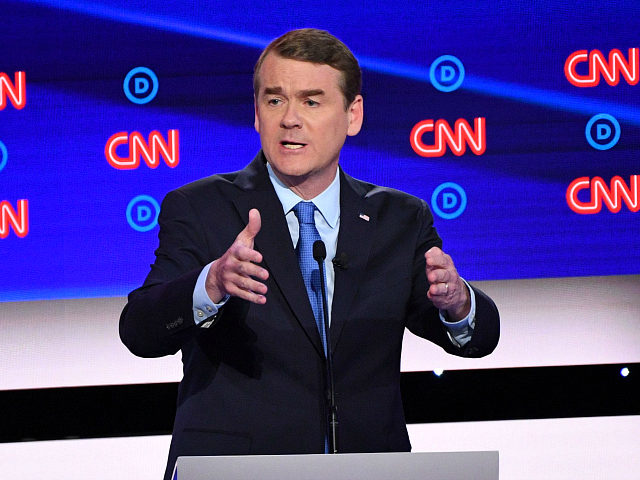Democrat 2020 hopeful Sen. Michael Bennet (D-CO) called for a change in the education system during the Democrat debate Wednesday to fix the school-to-prison pipeline.
Bennet was responding to a question by the CNN debate host who asked why he is the best candidate to heal the racial divide.
“Our schools are as segregated today as they were 50 years ago,” he said. “We need a conversation about what’s happening now.”
“Equal is not equal,” added Bennet, who served as superintendent of Denver Public Schools. “Eighty-eight percent of the people in our prisons dropped out of high school. Let’s fix our school system and maybe we can fix the prison problem that we have.”
In a recent letter sent to the White House and congressional leaders, Catherine Lhamon, an Obama-era appointee and chair of the U.S. Civil Rights Commission, wrote the commission’s investigation into school discipline practices suggests “students of color with disabilities face exclusionary discipline pushing them into the school-to-prison pipeline at much higher rates than their peers without disabilities.”
However, the Trump administration revoked the Obama administration’s 2014 “Dear Colleague” letter in December, following a federal school safety commission report that found the race-based student discipline practices “may have paradoxically contributed to making schools less safe.”
The civil rights commission called for the White House and Congress this month to support the continuation of the Obama-era race-based school discipline practices that employ leniency for students of color and other minority groups.
Nevertheless, one of the two dissenting commissioners, Peter Kirsanow, wrote at National Review that the report is “essentially a defense of the Obama Department of Education’s 2014 ‘Dear Colleague’ letter that used disparate-impact theory to interpret racial disparities in school discipline as evidence of racial discrimination.”
To progressives, “any racial disparity necessarily means invidious racial discrimination,” Kirsanow asserted, adding:
It’s undisputed that black students, as a group, are disciplined more than white students. For the commission majority, this is evidence of racially disparate treatment, as it’s an article of faith that discipline disparities aren’t due to disparities in behavior.
Kirsanow urged that the commission’s report be ignored.
“Claiming that racism or dislike of children with disabilities accounts for disparate rates of discipline only stokes resentment and erodes personal responsibility,” he said. “The supposed cures of ‘restorative practices’ and ‘positive behavioral interventions and supports’ only make it more likely that children in minority neighborhoods who want to learn will be less able to do so, and that teachers and children will be at the mercy of school bullies.”

COMMENTS
Please let us know if you're having issues with commenting.